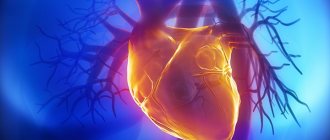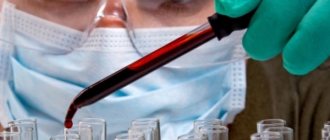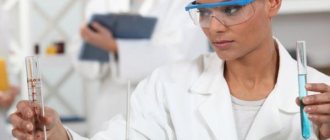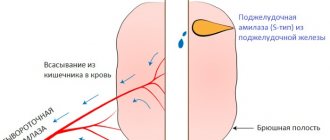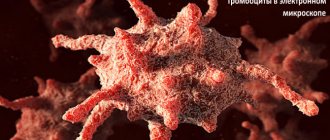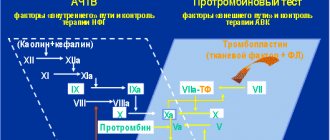ACTH is an adrenocorticotropic hormone, also called corticotropin. It is responsible for the body’s resistance to stress, participates in the regulation of metabolism, and influences the endocrine glands.
The name of this hormone can be translated from Latin as “relative of the adrenal glands.” The main function of ACTH is to trigger the work of the adrenal glands, which are responsible for the production of sex hormones (androgens and estrogens), catecholamines (adrenaline and norepinephrine) and cortisol.
We wrote more about what elevated cortisol levels mean in women here.
ACTH hormone: what is it responsible for in women?
In addition to the general functions of corticotropin in the human body, one can highlight its specific role in the female reproductive system. Although the ovaries are not directly sensitive to ACTH, it interacts with other pituitary hormones, such as prolactin, follicle-stimulating and luteinizing hormones.
ACTH is able to increase and decrease their production. Hormones produced by the pituitary gland control the functioning of the female reproductive system, responsible for ovulation and maturation of the corpus luteum. All this has a direct impact on the nature of the menstrual cycle, its duration and regularity. Directly related to the ability to bear children.
The main tasks of the hormone
Adrenocorticotropic hormone regulates the functioning of the endocrine and reproductive systems. However, it has a direct impact on the functioning of other, no less important, organs.
One cannot but take into account its close interaction with other pituitary hormones - somatotropin, prolactin and vasopressin. But, despite the beneficial properties of the hormone, it also has a number of negative effects that you need to be aware of.
ACTH performs the following important functions:
- Takes part in the synthesis of protein and nucleic acids. With prolonged exposure to hubbub on adrenal cells, they gradually grow. Since the paired organ produces sex hormonal substances (progesterone, estrogen, testosterone) and cortisol, with the active growth of its tissues, the concentration of these elements increases significantly.
- Short-term exposure of adrenal cells to ACTH stimulates the production of cortisol. Read more about the hormone here.
- It has a direct effect on the production of aldosterone and deoxycorticosterone. These are hormones that regulate mineral metabolism in the human body.
- Activates the production of hormonal substances that are precursors of androgen.
- Accelerates the process of cholesterol production.
- Promotes the production of melanocytes.
In addition, the hormone ACTH has a direct effect on the brain and stimulates the development of cognitive functions.
Negative effects of the substance
Adrenocorticotropin also has negative effects, manifested in:
- suppression of the immune system;
- decrease in muscle mass;
- slowing down the digestion process;
- deterioration of memory, thinking and other cognitive functions.
But such violations occur only in the case of excessively high ACTH levels. If they are normal, then no ailments should arise.
ACTH in women
ACTH hormone - what is it in women? By itself, this element has virtually no effect on the functioning of the ovaries. However, its close interaction with LT, FSH and prolactin cannot be denied.
Under the influence of corticotropin, the production of these hormones is accelerated or slowed down. Acting in close tandem, the hormones of the anterior lobe of the pituitary gland regulate the functioning of the female reproductive system.
If we talk about what the ACTH hormone is responsible for in women of childbearing age, then the possibility of pregnancy and the stability of the menstrual cycle depend on its concentration in the blood. When the level of this substance in the blood increases, the production of female sex hormones is inhibited. Instead, the concentration of testosterone begins to steadily increase, which can lead to the appearance of acne on the skin, shifts in the menstrual cycle, and the appearance of hair on those parts of the body where the fairer sex should not have it (for example, on the face). At the same time, insufficient production of estrogen and progesterone, which occurs against the background of increased ACTH, can cause the development of infertility.
Functions
The main functions of adenocorticotropin include the following:
- Stimulation of protein and nucleic acid synthesis in the adrenal glands. This ensures the growth of the adrenal cortex, which produces important hormones.
- Increased synthesis of cortisol, which is designed to use the body's resources during stress. Namely: it awakens the “tiger or hare” nervous system reflex (fight or flight); provides a rush of blood into muscle tissue; increases glucose concentration, improving muscle function. In addition, cortisol can prevent allergic reactions and act as an anti-inflammatory and pain reliever.
- Direct impact on indicators such as weight, muscle mass and strength, invulnerability of body tissues in stressful situations.
Functions of ACTH
Only in the middle of the last century did scientists figure out the relationship between the hypothalamus, pituitary gland and the work of the adrenal glands. It turned out that the production of the hormone adrenocorticotropin by the pituitary gland is controlled by the posterior part of the hypothalamus. And ACTH regulates the functioning of the adrenal glands and their secretion of other hormones in the body (cortisol, cortisone, corticosterone).
Since ACTH also affects the production of various biologically active substances, we can say that this hormone is responsible for such body functions as:
- reaction to stressful situations;
- immune system (disease resistance);
- the body's adaptability to external changes;
- increased pain threshold;
- resistance to allergic reactions;
- work of the body's reproductive system.
ACTH indirectly affects the production of adrenaline, as it stimulates the secretion of adrenocorticosteroid. It also affects the production of human sex hormones, which in turn affect the functioning of the glands, accordingly regulating mood in women and libido in men.
The functions of adrenocorticotropic hormone itself include:
- an increase in the concentration of cortisol, which helps a person recover in a stressful situation;
- influence on the formation of nucleic acids and proteins in the adrenal glands, which leads to their growth and increased secretion of hormones such as cortisol, progesterone, estrogen, testosterone;
- influence on brain cells - if deficient, causes memory problems, depression, apathy;
- participation together with other peptide hormones in the functioning of the body;
- Helps in the production of cholesterol, necessary for the protection of red blood cells, the formation of cell walls, nerves, and the formation of vitamin D.
In addition, ACTH affects weight and muscle mass in humans.
Norm
ACTH hormone:
- The norm for women in generally accepted units ranges from 0-50 pg/ml.
- Pathology is considered to be an excess of the normal level by 1.5 times or more. Various external factors can lead to slight fluctuations in ACTH, which does not equate to pathology.
- In pregnant women, a slight increase in this hormone is acceptable.
- It should be noted that different laboratories may use different reference values; when reading the result, you need to pay special attention to this.
In the morning and evening
The production of adenocorticotropic hormone depends on the time of day (circadian rhythm), so the levels will differ at different times of the day. The formation of ACTH is associated with the hormone corticoliberin, which is triggered by the pituitary gland.
- Active production of this hormone occurs from 6 to 9 am.
- The lowest concentration in the blood is observed from 20 to 23 hours.
In this regard, the ACTH level also changes:
- Its maximum concentration will always be in the morning.
- Minimum - in the evening.
Deviations from the norm
The paradox is that the slightest changes in ACTH levels can greatly affect various body functions, but at the same time, the levels of this hormone fluctuate depending on any stress factors:
- Excessive physical activity.
- Smoking.
- Alcohol.
- Medicines.
- Mini-stresses (even joyful ones) on the eve of the study - all this can distort the indicators.
Therefore, the analysis must be approached responsibly, and a specialist should decipher the results.
ACTH norms
Standard reference values
The norm for the ACTH test is an absolute value of 9-52 pg/ml.
Reference values of the Invitro laboratory Invitro values are somewhat different from the standard ones, since the more modern equipment of this laboratory allows measurements to be taken with greater accuracy.
- <46pg/ml
Factors influencing the result
- failure by the patient or medical staff to comply with the rules of preparation for the procedure;
- taking medications;
- recent injury or surgery;
- inappropriate phase of the menstrual cycle;
- the patient has a high temperature;
- pregnancy and lactation;
- unstable mental state;
- time zone change;
- sleep disorder;
- hemolysis (destruction) of red blood cells.
Important! The interpretation of the results is always carried out comprehensively. It is impossible to make an accurate diagnosis based on only one analysis.
Increased ACTH hormone
Temporarily elevated ACTH hormone can be caused by various environmental factors. In this case, there is no need to talk about pathology; the described symptoms are absent.
Symptoms of excess ACTH:
- Specific appearance : fat deposits on the back, abdomen, neck and face; menopausal hump (fat deposits in the area of the 7th cervical vertebra); thin arms and legs.
- Skin changes : multiple spider veins; acne; redness on the face, cyanosis; burgundy stretch marks in the abdominal area; translucent vessels (marble skin); thin skin on the hands.
- Recurrent viral and inflammatory diseases against the background of suppressed immunity.
- Increased blood sugar due to decreased sensitivity to insulin. Read here about the cause and treatment of high blood sugar.
- Disturbances in the cardiovascular system as a result of failure of renal function. A drop in sodium levels and excess potassium leads to high blood pressure, heart pain, rapid heartbeat and dystrophy.
- Excess androgens against the background of a lack of female hormones and progesterone. Women experience excessive hair growth on the upper lip, chin, neck, chest and abdomen; the menstrual cycle is disrupted until there are no periods; Libido decreases. Read about the symptoms of low progesterone in women here.
- Bone calcium deficiency ; fractures; dental problems; joint pain.
The role of ACTH in the body
Adrenocorticotropic hormone, ACTH is a protein with a biologically active effect. It is produced by cells of the anterior pituitary gland under the influence of the hypothalamus. The mechanism of action is based on the feedback principle. The more the adrenal glands produce cortisol, the less corticotropin activity, and vice versa.
Functions of the hormone ACTH
Functions of adrenocorticotropic hormone ACTH:
- stimulates the production of steroid hormones in the adrenal glands;
- maintains the required mass of the adrenal glands.
ACTH is primarily responsible for the formation of cortisol, storing it in the adrenal glands. It has virtually no effect on the release of cortisol into the blood. Additional functions of ACTH:
- breaks down fats;
- enhances the absorption of glucose and amino acids by muscles;
- provokes the release of insulin by pancreatic cells;
- enhances the activity of melanocytes - pigment cells of the skin.
A large amount of the hormone causes an increase in the mass of the adrenal glands and thickening of their cortex.
The production of corticotropin follows a circadian rhythm. The largest amount is formed between 6 and 8 am. The smallest amount is formed in the evening, from 18 to 23 hours. The circadian rhythm is highly dependent on environmental factors. So, when changing time zones, the rhythm normalizes within a week. Stress causes rhythm disruption and a sharp increase in cortisol in the blood.
Negative properties of cortisol
ACTH and cortisol are interrelated hormones. Their secretion is subject to the feedback principle. Cortisol is a stress hormone - when you are afraid or have strong emotions, there is a sharp release of cortisol into the blood. If this is a short-term process, it does not cause harm to health.
But a long-term, regular increase in cortisol negatively affects the body:
- weakens the immune system;
- body weight increases;
- stretch marks appear on the skin;
- blood pressure increases;
- bones become brittle.
The person becomes inattentive and irritable. Characterized by fatigue, apathy, and depression.
Impact of ACTH on the female reproductive system
ACTH and cortisol have the greatest impact on the female body. High levels of adrenocorticotropic hormone disrupt the function of the female reproductive system. A woman with pituitary hyperfunction experiences the following symptoms:
- menstrual irregularities up to absence of menstruation;
- infertility;
- chronic miscarriage.
The female appearance takes on masculine features. The skin becomes rough and male-type hair develops. The figure also becomes similar to a man’s – broad shoulders, narrow hips.
Reasons for increased ACTH levels in the blood
- Stress or extreme event.
- Taking medications that affect the pituitary gland and adrenal glands.
- Postoperative conditions and previous injuries.
- Addison's disease.
- Itsenko-Cushing's disease.
- Nelson's syndrome.
- Syndrome of ectopic ACTH production.
- Tumors.
- Congenital adrenal insufficiency.
- Adrenal virilism.
Possible consequences:
- One of the common reasons leading to an increase in the level of the hormone ACTH is adrenal crisis.
- Increased production of hormones from the adrenal cortex leads to tachycardia and hypertension.
- This condition is dangerous for the development of strokes and heart attacks,
- Depletion of the body may also occur, sometimes leading to death.
Indicators for women and men
After receiving the final indicators, they are compared with the values accepted as the norm. Adrenocorticotropin levels are usually measured together with blood cortisol, sex hormones, or other pituitary hormones.
Norm
In a healthy person, the ACTH concentration ranges from 5 to 45 pg per 1 ml. The result may be influenced by the following factors:
- day of the menstrual cycle (optimally on the sixth or seventh);
- time of day (from 7 to 8 am the maximum, and by 21 o’clock it reaches a minimum);
- pregnancy;
- change of time zones (it takes at least a week to restore normal levels);
- stress – pain, cold, physical strain, excitement, anxiety, fear.
Promoted
If the adrenal glands produce little cortisol, then ACTH increases by 1.5-2 times. This condition is called Addison's disease. It occurs with autoimmune disorders or severe tuberculosis infection. The second reason is a tumor (adenoma) of the anterior pituitary gland, which intensively produces ACTH. Patients develop hypercortisolism syndrome, Itsenko-Cushing's disease.
An increase in the concentration of the hormone also occurs in neoplasms outside the adrenal glands, if they are capable of synthesizing compounds similar to ACTH in structure and function. Such tumors occur in the uterus, lungs and intestines. Rarer reasons include:
- insulin therapy;
- administration of a synthetic analogue of ACTH;
- use of Veroshpiron or drugs with estrogens, amphetamine, alcohol, Prednisolone;
- congenital enlargement of the adrenal glands (hyperplasia);
- Nelson's syndrome (occurs with bilateral removal of the adrenal glands);
- traumatic injuries, extensive operations.
Demoted
Pathological conditions that lead to low scores include:
- long-term treatment with corticosteroids (hydrocortisone and analogues);
- secondary adrenal insufficiency;
- Itsenko-Cushing syndrome;
- adrenal tumors;
- low activity of the pituitary gland (hypopituitarism).
We recommend reading the article about Nelson syndrome. From it you will learn about the lack of which hormone causes Nelson's syndrome, the symptoms of the pathology, complications of the disease, as well as about the diagnosis of the patient's condition and the treatment of Nelson's syndrome.
And here is more information about adrenogenital syndrome.
Adrenocorticotropic hormone is produced by pituitary cells when the concentration of cortisol in the blood decreases, under stress, in response to the supply of corticoliberin from the hypothalamus. Under its influence, metabolic processes and the formation of sex hormones change, puberty in children is accelerated.
Insufficient intake into the blood leads to disruption of the adrenal glands, cortisol deficiency, which is manifested by low blood pressure, darkening of the skin, and weight loss. An excessive increase in concentration causes hypercortisolism with obesity, hypertension, excess hair growth, and changes in the menstrual cycle.
Decreased ACTH hormone
Symptoms of ACTH deficiency in women:
- Weight loss , significant weight loss.
- Bronze disease or excessive skin pigmentation. This is due to excessive production of the pigment melanin, which is responsible for the color of the skin. First, open areas, external genitalia, nipple halos, and skin folds acquire a dark color.
- Digestive disorders . Decreased appetite or lack thereof, constipation, causeless nausea, pain in the intestines and stomach.
- Severe weakness , moderate muscle pain in the absence of physical activity. This is due to metabolic disorders and its insufficient intensity.
- Low blood sugar (hypoglycemia). Usually accompanied by a deterioration in health 2-3 hours after eating. Caused by excessive sensitivity to insulin. In this article, we looked in detail at the issue of normal blood sugar levels in adults before and after meals.
- Mental disorders . It manifests itself in depression, apathy, poor memory, lethargy, physical inactivity, and sometimes psychosis and neurotic states develop. This is caused by low levels of the hormones T3 and T4.
- Hypogonadism . Low ACTH levels provoke a lack of estrogen, which causes various menstrual irregularities, including their absence. Underdevelopment of the genital organs in women, both internal and external, may also be observed. This symptom can appear in childhood.
Read about the consequences of increased prolactin in women here.
Reasons for decreased ACTH levels in the blood:
- Corticotropin decreases as a result of damage to the pituitary gland or when the concentration of adrenal hormones is excessively high. This can occur as a result of injury or infection.
- Corticosteroma is an adrenal tumor. Increases the release of cortisol, causing obesity, increased blood pressure and blood glucose levels, and migraines.
- Benign and malignant tumors of the pituitary gland.
- Inflammatory processes in the pituitary gland , lymphocytic hypophysitis. For unknown reasons, this complication occurs in women after childbirth. Symptoms such as hypotension, low temperature, headaches, and blurred vision occur.
- Autoimmune disorders in the pituitary gland . They present themselves as follows: diabetes insipidus, low body temperature (below 36 degrees), exhaustion, frequent chills, early appearance of gray hair, destruction of dental tissue, dry skin.
- Taking drugs that suppress ACTH synthesis . These are medications such as cryptoheptadine, calcium gluconate, ethyl alcohol, amphetamines and glucocorticoids.
Possible consequences
The most important consequence of a lack of ACTH in the body is insufficient function of the thyroid gland and adrenal glands. This has a direct connection with the malfunction of the hypothalamus and pituitary gland.
A lack of thyroid hormones leads to a number of disruptions in the functioning of other body systems, and metabolic processes are inhibited. Fainting may occur frequently, and sexual function may be impaired. A short-term decrease in corticotropin in the blood does not have negative consequences.
Low ACTH: causes, manifestations
If ACTH is low, this may result from:
- Damage to cells of the pituitary gland or hypothalamus, which can be caused by trauma, infectious diseases, etc.
- Inflammation of the pituitary gland. This is one of the postpartum complications in women, the causes of which are still unknown.
- Autoimmune lesions of pituitary cells.
- Corticosteromas are tumors of the adrenal glands. In this case, the level of cortisol is increased, and ACTH, on the contrary, is low.
- Pituitary tumors that do not produce hormones.
Also, the reasons that ACTH is low may be medications that reduce hormone production. In particular, such a deviation may result from the use of hydrocortisone, Dexamethasone, cryptoheptadine, lithium, etc.
Important! A decrease in ACTH is observed in people taking amphetamines and abusing alcohol.
Main features
If adrenocorticotropic hormone is low, then such a deviation may manifest itself:
- skin hyperpigmentation;
- sudden weight loss;
- indigestion;
- decreased blood sugar levels;
- general weakness;
- hypotension;
- depressive states;
- memory impairment;
- muscle pain;
- loss of strength, etc.
A short-term decrease in ACTH, as well as a temporary increase in its level, does not entail adverse health consequences. In addition, the symptoms of this deviation are less pronounced, so patients do not always pay attention to them.
But if such ailments are identified, it is still better to undergo an examination by an endocrinologist and pass all the necessary tests. Do not forget that the earlier the disease is detected (if one really exists), the more effective the treatment will be, and the prognosis for recovery will be as favorable as possible!
Features of a blood test for ACTH
The main condition for preparing for an ACTH test is to avoid factors that can artificially increase its level.
Namely:
- Drinking alcoholic beverages.
- Smoking.
- X-ray, ultrasound, fluorography and other radioisotope studies.
- Heavy physical exercise.
- Abrupt change of time zones, moving to another country/city.
- Stress.
- Infectious and viral diseases.
- Injuries of various types.
Read about the symptoms of excess estrogen in women here.
If anything from this list occurred, you should wait a while with the ACTH analysis. You should also stop taking medications at least a week before taking the test. This is especially true for insulin-containing drugs, metopyrone and glucocorticoids.
If for any reason it is impossible to discontinue the medication, you should notify the laboratory staff, indicating the name and dose of the drug.
An ACTH hormone test is taken:
- At 8 am: it is at this time that the norm of results is calculated.
- Blood is taken from a vein on an empty stomach.
- Women should get tested on days 5-7 of their cycle.
- Before taking blood, you need to rest for at least 20 minutes and sit quietly.
What is ACTH hormone?
ACTH in medicine stands for adrenocorticotropic hormone. Often patients are prescribed to donate blood for ACTH.
What is the adrenocorticotropic hormone ACTH responsible for?
The production of such a hormone occurs due to the glands (pituitary gland), which are located in the human brain. It is he who directly affects the adrenal glands, actively stimulating the production of cortisol and other required components. The patient is sent for an ACTH test if there is a likelihood of problems and diseases of the adrenal cortex, to quickly identify disorders. Doctors also strongly recommend that you undergo the test again after surgery in order to exclude repeated cases of the disease.
In what cases should ACTH tests be taken?
- constant weakness and fatigue;
- frequent surges in blood pressure;
- after surgery for a pituitary tumor;
- in the presence of cortisol in the blood in small or too large quantities;
- when confirmed or suspected of Itsenko-Cushing's disease.
- Actg increases with exacerbation of adrenal insufficiency;
- A referral for a blood test can be issued by a cardiologist, therapist, oncologist, as well as an endocrinologist.
Rules to follow before analysis.
Blood testing for ACTH must be done on an empty stomach. The day before the test, you should never drink alcohol or take any medications. Also eliminate external irritants and avoid overexertion and stress. Heavy smokers need to abstain from the bad habit (several hours before ACTH). By adhering to all of these recommendations, you can more deeply and accurately determine the presence of malfunctions and problems with the production and amount of hormones in the pituitary gland. Otherwise, ACTG will have to be retaken more than once.
Where can I get tested?
You can take a blood test for adrenocorticotropic hormone in specialized endocrinology laboratories. Only here we have the necessary modern generation foreign-made equipment.
Once the results are ready, you should immediately seek advice from specialists. Only they, based on a blood test for ACTH, will be able to correctly select treatment and prescribe the required therapy.
Who is prescribed a blood test for ACHT?
ACTH hormone: when to take it for women?
Indications for testing the level of the hormone ACTH are as follows:
- Early puberty in girls.
- Adrenal insufficiency.
- Osteoporosis, fractures, brittle bones.
- Hyperplasia and adenomas of the adrenal glands.
- High blood pressure of unknown etymology.
- Chronic fatigue.
- Excessive pigmentation in certain areas of the skin (or general).
- Symptoms of hormonal disorders (excessive body hair growth in women, acne, etc.).
- Suspicion of Cushing's disease.
- Monitoring the patient's condition after removal of adrenal or pituitary tumors.
Preparing for analysis
How to get tested correctly? On the eve of the analysis, you need to protect yourself from stress and reduce physical activity. If a lady has recently changed time zone, she should first acclimatize and then donate blood. You should not go to the laboratory after recent infections or injuries. The day before, you need to avoid alcohol and taking medications (especially hormonal ones). You should not take a blood test on the day of other tests - ultrasound, x-ray or endoscopy. It is better not to smoke on the day of the examination. Correct behavior before the study will ensure the correct result.
Ladies should come to the laboratory in the morning on an empty stomach. Women ask when to take a blood test, on what day of the cycle. Answering this question, we can say that the best time to donate blood is 6–8 days of the monthly cycle.
Treatment
There are several treatments for abnormally low or high levels of the hormone:
- Medication method. Cytostatic drugs such as Mercaptopurine and Chloditan are used in treatment. They are mainly used in the presence of a tumor process. Used both for increased levels and decreased ACTH.
- The radiation therapy method is used when the tumor is localized in the brain (proton exposure, gamma therapy).
- If conservative treatment (the two previous methods) does not produce results, surgical intervention is resorted to . It usually involves removing the adrenal glands, after which the patient undergoes chemotherapy. Tumors in the brain are also removed surgically, but due to the complexity of such operations, they are avoided as much as possible by using other methods.
According to statistics, 70% of patients with a distorted ACTH balance have adenomas removed. If the outcome is favorable, the cortisol level drops significantly. The level may stabilize at a minimum level for several years.
But it is not uncommon for the problem to recur over time. Doctors often encounter the tumor component of corticotropin. Its peculiarity lies in its complex diagnostics. Symptoms may only appear for a short time, making them difficult to “catch” in a laboratory setting. For this reason, Cushing's disease is often undetectable.
The role of the hormone
As mentioned, adrenocorticotropic hormone is responsible for the activity of the adrenal glands. Getting into them with the bloodstream, the hormone stimulates the production of glucocorticoids - cortisol, cortisone and adrenocorticosterone. These hormones are actively used by the body to stimulate certain cells and glands. The mechanism of action of hormones is based on their binding to specific adrenergic receptors located in many tissues and blood vessels. As mentioned above, these hormones are “stress”, i.e. increase the activity of the body in the presence of danger or as a result of the action of any pathogenic factor.
These hormones have an active anti-inflammatory effect, which is why their synthetic derivatives have found use in medicine.
In addition, there is a certain connection between adrenal hormones and ACTH: the substance increases the concentration of adrenal hormones, and their excess leads to the fact that ACTH (hormone) ceases to be produced. What kind of phenomenon this is and why this happens is still not known, but this paradox itself is called “feedback”.
Complications associated with changes in hormone levels
Quite often it happens that increased or decreased ACTH levels can lead to various complications.
Adrenal crisis is the most common condition that leads to an increase in ACTH (hormone). What it is?
Adrenal crisis is characterized by an excessive increase in the level of hormones of the adrenal cortex, which is manifested by tachycardia and increased blood pressure. Against this background, heart attacks and strokes often develop. In addition, a crisis can lead to exhaustion of the body, which is extremely dangerous and can be fatal.
A decrease in ACTH levels usually leads to the development of adrenal insufficiency, frequent episodes of fainting or collapse. In addition, sexual function is partially impaired (since the adrenal glands produce small amounts of testosterone and estrogens).
It is in order to prevent the development of these disorders that it is recommended to promptly monitor the levels of all hormones.
Clinical significance
ACTH stimulates the activity of the adrenal glands. Without this hormone, these glands would be inactive, which would lead to various diseases.
However, sometimes it happens that the amount of ACTH in the blood changes, and its determination is necessary. The hormone ACTH, the norm of which in the blood should be from 9 to 46 units (pg/ml), indicates the normal and correct functional activity of the pituitary gland. The amount of the hormone can increase or decrease (usually until it is completely absent in the blood).
The ACTH test is used to determine the level of this peptide.
It is usually carried out when a pathology is suspected. This study is not indicated for healthy people.
Judging by the level of hormone concentration in the blood, a conclusion is drawn about what level the pathological process is at - at the level of the hypothalamic-pituitary connection or at the level of the connection between the adrenal glands and the pituitary gland.
Decreased hormone levels
Under what conditions is ACTH reduced?
- Secondary adrenal insufficiency. A decrease in ACTH is due to the fact that adrenal hormones were produced in excessively large quantities, but were unable to demonstrate their function.
- Adrenal tumor (Cushing's syndrome). This formation helps to increase the amount of hormone-producing tissue, which ultimately leads to an increase in the level of adrenal hormones and inhibition of ACTH synthesis.
- Use of cryptoheptadine. This drug is aimed at suppressing the hunger center located in the hypothalamus. As a result, the synthesis of liberins can also be suppressed.
- Cortisol-producing neoplasms. They are somewhat different from the tumor in Itsenko-Cushing syndrome, but the effect is the same.
- Use of glucocorticoid drugs in large doses. The natural production of adrenal hormones is artificially reduced, but due to the large introduced concentrations, ACTH ceases to be produced.
